European Public Prosecutor’s Office charges 23 suspects over ‘Contract 717’ of the Greek railway

Πηγή Φωτογραφίας: Eurokinissi (Αρχείου),The European Public Prosecutor’s Office (EPPO) in Athens has brought charges against 23 suspects - including 18 public officials - for crimes relating to the execution of contracts for restoring remote traffic control and signalling systems on the Greek rail network, co-funded by the EU, according to an EPPO announcement on Tuesday.
The European Public Prosecutor’s Office (EPPO) in Athens has brought charges against 23 suspects – including 18 public officials – for crimes relating to the execution of contracts for restoring remote traffic control and signalling systems on the Greek rail network, co-funded by the EU, according to an EPPO announcement on Tuesday.
The charges, brought on Monday, relate to a project that has become known by the shorthand “Contract 717”, which came under intense scrutiny following the tragic rail disaster at Tempi earlier in the year.
Launched on 28 November 2022, the EPPO investigation focused on the contracts for restoring remote traffic control and signalling systems on the Greek rail network signed between ERGOSE – a subsidiary of the Hellenic Railways Organisation (OSE), responsible for the management of the contracts – and the Consortium Contractor, formed by two companies, responsible for the execution of the project. The evidence collected led to the accusation of 23 suspects, namely:
14 public officials of ERGOSE, charged with subsidy fraud. Two of them are also accused of false certification with the purpose of obtaining an unfair advantage for another person;
Four public officials of the Greek Managing Authority of the EU’s Operational Programme for Transport Infrastructure, Environment and Sustainable Development (EYD/EP-YMEPEPAA), charged with misappropriation of funds;
Five legal representatives and employees of the Consortium Contractor, charged with instigation of subsidy fraud and instigation of false certification with the purpose of obtaining an unfair advantage for another person.
The charges relate to the execution of a contract to restore the remote traffic control and signalling system of the Athens-Thessaloniki-Promachonas railway section, signed in 2014, for completion by 2016 – known as ‘Contract 717’. A supplementary contract was signed in 2019, regarding the same project, by which the original scope of Contract 717 was altered. The supplementary contract foresaw the construction of an entirely new signalling system with novel telemetry units, to allow communication and data transmission between train stations, and from train stations and control centres.
Both contracts were co-financed by the EU’s Cohesion Fund, under the program ‘Modernisation of Signalling-Telecommunications and Installation of the European Train Control System (ETCS)’, with the EU contribution amounting to 85%.
Improper execution of contracts
The evidence gathered points to criminal responsibility, for the following reasons.
On the basis of a private agreement, the two companies constituting the Consortium Contractor, immediately after the signature of Contract 717, arbitrarily split the project between them. One of the companies undertook to carry out the northern section of the project, while the second company undertook to carry out the project on the major part of the Athens-Thessaloniki route up to Platy, including the section near Tempi where a fatal railway collision occurred on 28 February 2023.
In addition, the second company entrusted the technical studies regarding the signalling systems of the Athens-Platy railway section to a third company, which did not possess the specific technical knowledge required – in breach of the terms of the contract, which stated that the expertise was to be carried out by a specified provider. This resulted in a breach of the contractual obligation concerning the provision of specialised expertise, for which a financial penalty of approximately 2 million euros was imposed on ERGOSE, following an audit carried out in 2018 by Greece’s Financial Audit Committee (EDEL).
While the original scope of Contract 717 entailed the restoration of existing signalling-telecommand systems, the Consortium Contractor attempted to construct an entirely new signalling system with novel telemetry units. It is understood that this was an unlawful modification of the original contract, which resulted in an unwarranted increase in the value of the contract, not justified by any unforeseen circumstances.
According to the investigation, a total of seven unlawful extensions of the original contract were granted, pursuant to the decisions of the Board of Directors of ERGOSE. For this reason, the project has not yet been completed, more than nine years after Contract 717 was signed.
It is alleged that employees of ERGOSE, responsible for the management of the project, intentionally declared incomplete and false information to the Managing Authority regarding the existence of facts critical to the distribution of the funds and the approval of the extensions. As a result, the requests were approved by the Managing Authority, which paid the funds to the beneficiary, ERGOSE, which subsequently paid the Consortium Contractor.
Furthermore, it is alleged that officials of the Managing Authority, responsible for overseeing the use of the funds, acted in breach of the principles of prudent asset management. It is understood that, despite the fact that the information conveyed by employees of ERGOSE was patently inaccurate or false, the public officials of the Managing Authority approved the distribution of the corresponding funds, causing damage to the financial interests of the EU and the Greek State amounting to over 15.6 million euros.
The crimes of which the defendants are accused are punishable by up to 10 years’ imprisonment, along with a fine.
The investigation also uncovered facts that could constitute a breach of duty by inspector-auditors of Greece’s National Transparency Authority (NTA), who were entrusted by Greece’s Public Prosecutor’s Office with the task of carrying out an audit into the execution of Contract 717. The EPPO decided to refer this new case to the Greek competent authorities, for further legal action, as the facts subject to this investigation do not constitute a criminal offence within the EPPO’s mandate.
The EPPO is the independent public prosecution office of the European Union. It is responsible for investigating, prosecuting and bringing to judgment crimes against the financial interests of the EU.
Διαβάστε όλες τις τελευταίες Ειδήσεις από την Ελλάδα και τον Κόσμο









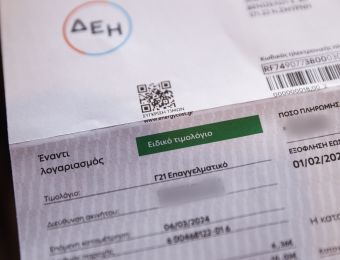
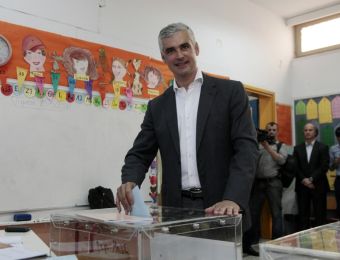

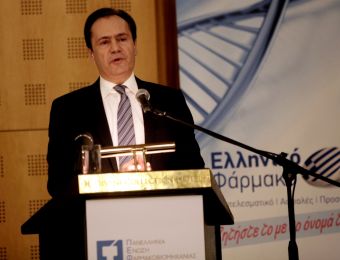
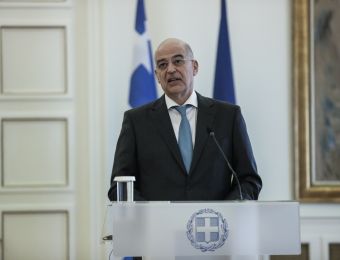




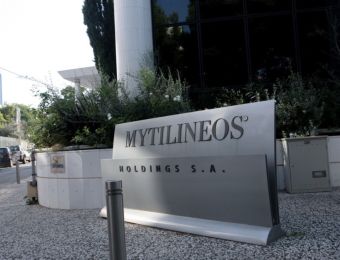
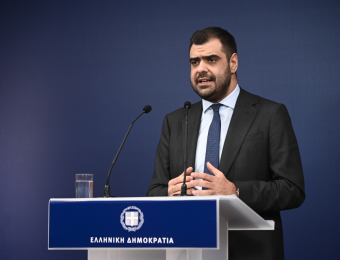









Το σχόλιο σας